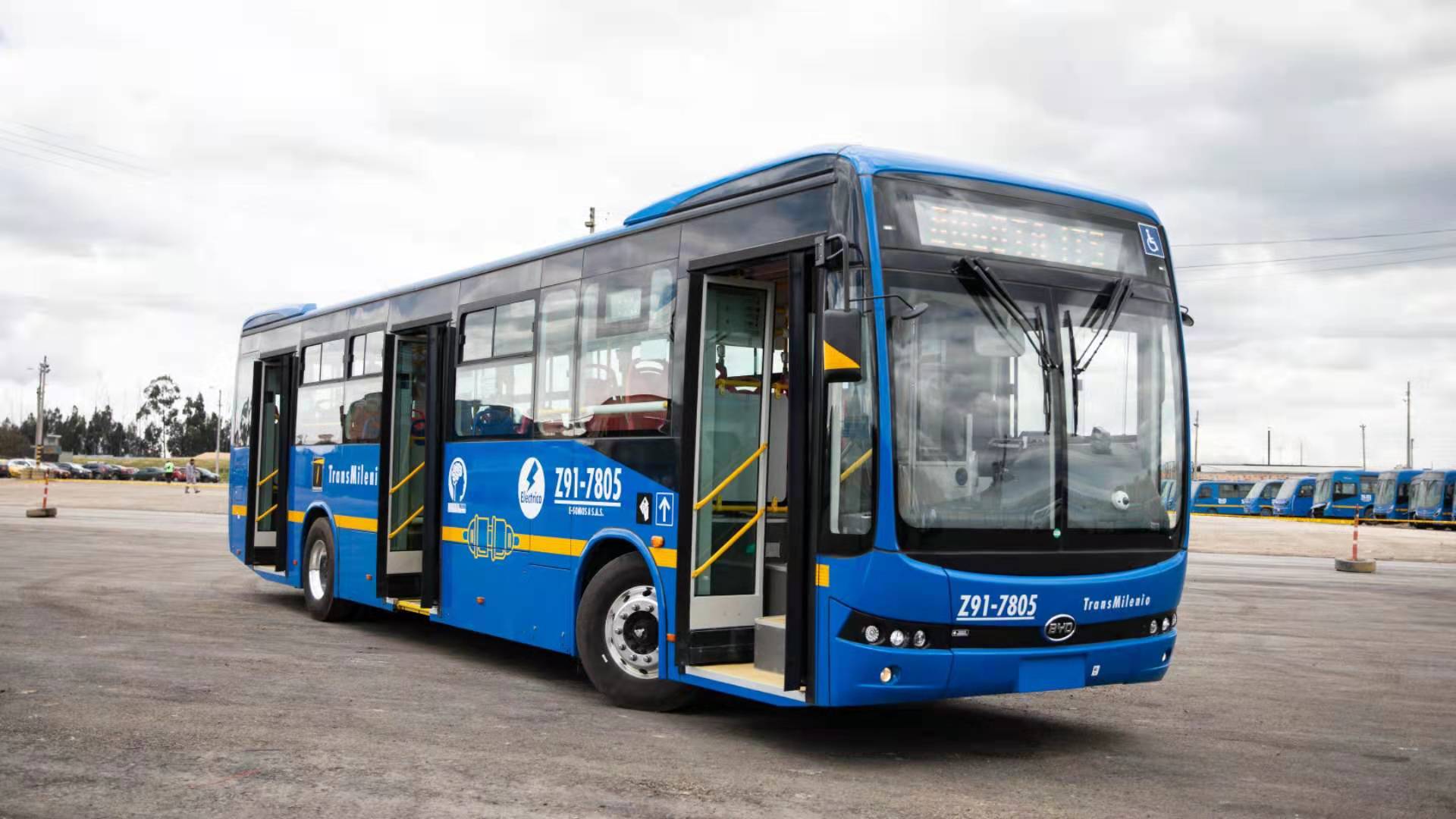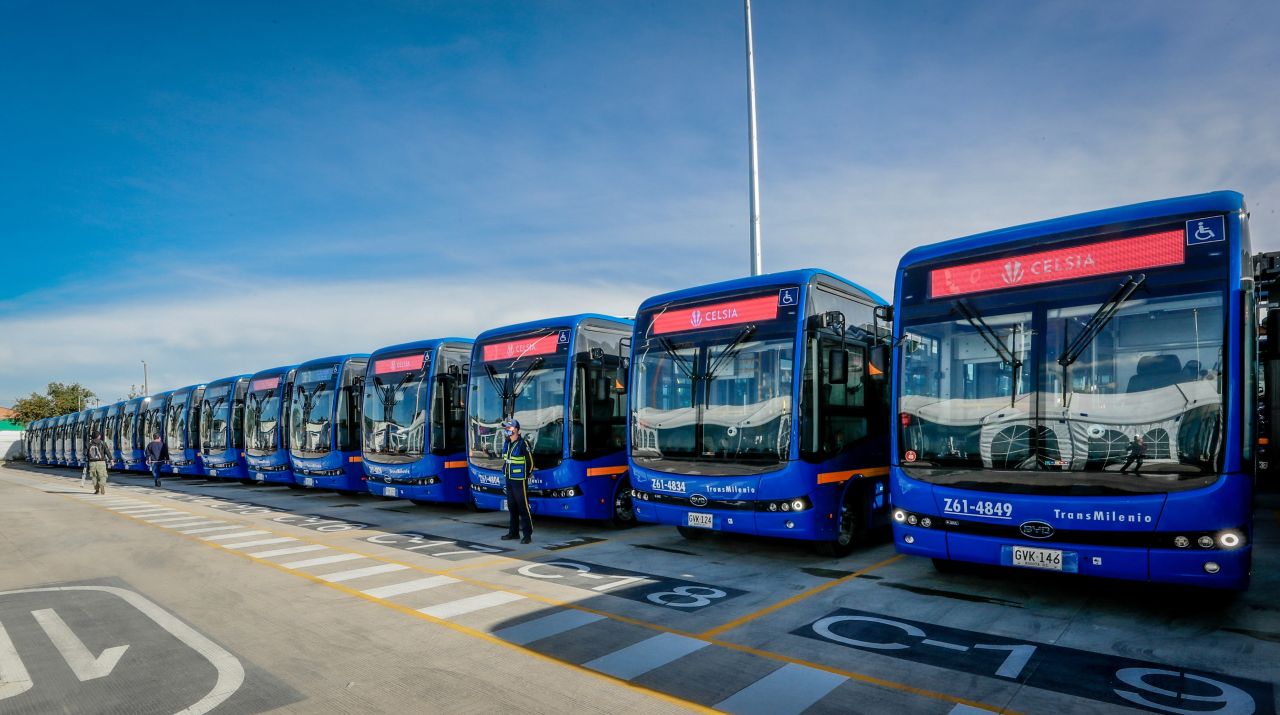Enel X strategies for public transport: electrification carries the need for innovative solutions
Public transport authorities and operators all over the world are moving towards a growing deployment of full electric buses. Providing vehicles and full service, charging infrastructures, smart city services: these are the pillars of Enel X offers in the field of e-buses, as the utility company has since a few years put the transition of public transport to zero emissions in the spotlight of a series of dedicated activities.
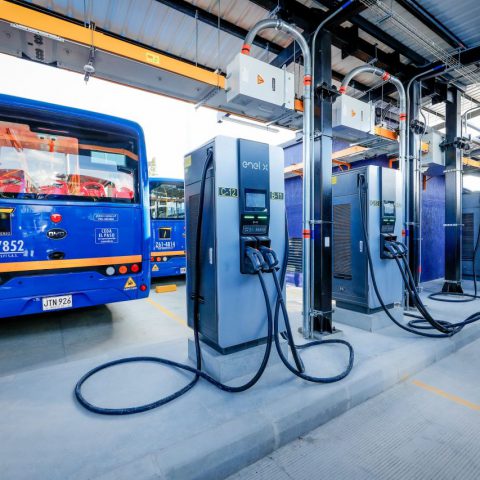
Public transport authorities and operators all over the world are moving towards a growing deployment of full electric buses. Providing vehicles and full service, charging infrastructures, smart city services: these are the pillars of Enel X offers in the field of e-buses, as the utility company has since a few years put the transition of public transport to zero emissions in the spotlight of a series of dedicated activities.
Such evolution brings about a paradigm shift in terms of skills, capabilities, planning, and is therefore opening a market for innovative financial and operational tools. Providing vehicles and full service, charging infrastructures, smart city services: these are the pillars of Enel X offers in the field of e-buses, as the utility company has since a few years put the transition of public transport to zero emissions in the spotlight of a series of dedicated activities.
Globally, Enel X serves around 1,400 e-buses, nevertheless, a significant challenge related to growth is ahead of us
Riccardo Amoroso, Head of Enel X e-City
The projects launched by the company in the Latin American markets are quite renowned, but Enel X strategies involve also Europe and Australia, where the entrance of Enel X in the public transport market has been announced just a few weeks ago.
Enel X and the electrification of public transport
Enel X, the Enel Group’s global business line focused on offering services addressed at accelerating innovation and energy transition, is today a global leader in electric mobility applied in the public transport sector, with more than 195,000 electric vehicle charging points around the world connected to its platform today. Globally, Enel X has already been contracted to manage and serve more than 1,400 e-buses, making it the largest provider of e-bus solutions in the world today outside of China.
Electrifying public transport, like private mobility, is a highly enabling vehicle from the perspective of decarbonization. The benefits of green public mobility are undeniable: from the well-known ones such as reducing carbon emissions as outlined in the Paris Agreement, but also by the real possibilities for public administrations and local public transport companies to reduce their operating and maintenance costs and offer a high-quality service to their citizens. Achieving global decarbonization goals and transforming a city into a smart city are two intrinsically related goals.
The background of such needed evolution in public transport lies in the trend of increasing urbanization: by 2050, about two-thirds of the world’s population are expected to be living within cities and surroundings, which today are already responsible for over 70% of global emissions, of which a quarter derives from road transport, according to figures mentioned by Enel X.
Enel X, public transport market on the way to the transition
A recent analysis by ReportLinker estimated the compound annual growth rate of the global electric bus market between now and 2030 at 13.9%. Latin America will be one of the leading markets with an estimated 28.4% growth, while the European Union expects a strong and rapid diffusion of e-buses between 2022 and 2025 following the implementation of the EU Clean Vehicle Directive which will stimulate the adoption of electric buses in national public tenders as it provides for a quota of low and zero emission buses that must be observed in public transport bus procurement.
Smart Charging and the future of bus electrification
Enel X’s choice has been to focus on innovation in the field of technology and processes: “Electrification is the first step in the path of decarbonization. If we add to this also the growth of urbanization, it becomes essential to rethink urban mobility in a sustainable way. Decarbonizing public transport would have an immediate positive impact on the livability and sustainability of our cities but also on operational efficiency, quality of service and spending budget.” Amoroso says, “Our ambition is to consolidate our presence in LatAm and to start projects in other regions outside Latin America”.
Also, in order to meet cities’ and operators’ specific needs in terms of public mobility, Enel X has developed innovative data-driven models aimed at evaluating a study on road routes, the conformation of the territory, weather and traffic conditions and the habits of its citizens to define the starting point before opting for the most performing solution.
The global electric bus market is expected to witness an annual growth rate at 13.9% between now and 2030 at 13.9%. Latin America will be one of the leading markets with an estimated 28.4% growth, while the European Union expects a strong and rapid diffusion of e-buses between 2022 and 2025 as they implement the EU Clean Vehicle Directive
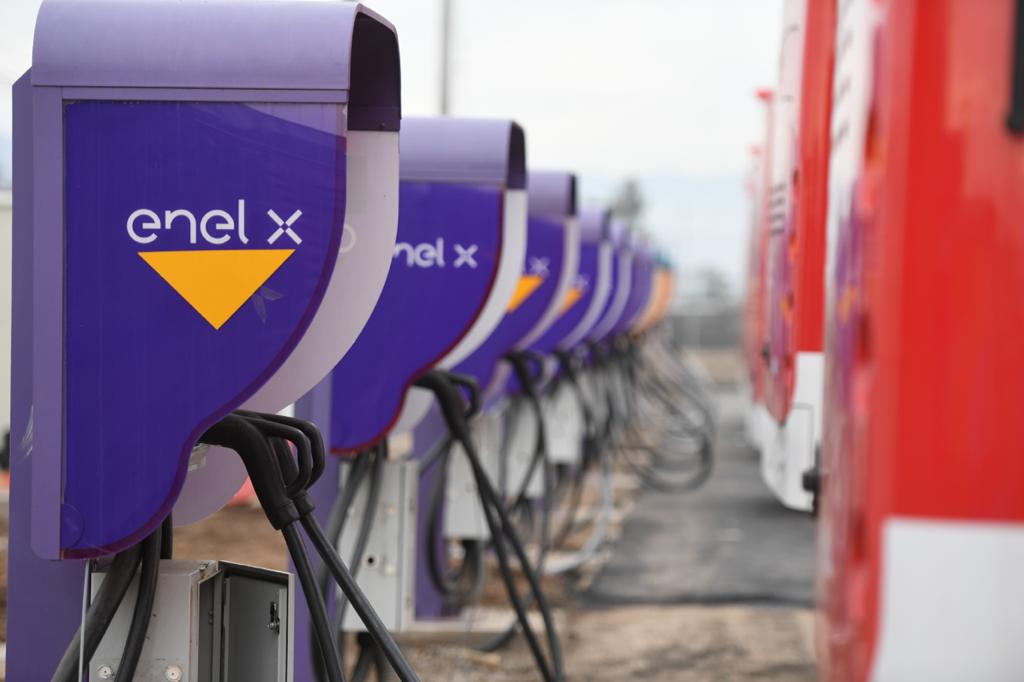
The approach stands out for being modular: each project can include
- Providing the vehicle with a full-service included
- Charging infrastructure and digital optimization systems
- Smart city services that help improve the user experience
Enel X for public transport: planning and project financing
In addition to the direct supply of individual modules, Enel X also offers additional planning methods and project financing, in addition to the ‘Spot Sale’ option, whereas the company provides the charging infrastructure in spot sale and Smart Charging services.
eBus as-a-service
It is addresses those looking for an expert partner in mobility, electrification and energy services, with an integrated approach compared to the traditional purchasing processes of administrations and public transport operators. It includes all the support necessary to deliver a turnkey project: from support in the preliminary analyzes and in the design phase to the provision of the fleet, design, installation and maintenance of the charging infrastructure.
It also includes the supply of renewable energy, smart charging and smart city services (connectivity services, security cameras, smart shelters). Enel X covers all the initial investment and the technological, construction and operational performance risks of the project, against a single integrated fee paid throughout the duration of the project (between 10 and 20 years).
Charging as-a-service:
Under the ‘Charging-as-a-service’ model, Enel X deals with the planning, construction, installation, management and maintenance of charging services fleets of electric buses, in addition to energy supply, whereas the electric bus is supplied by third parties. The costs are borne entirely by Enel X and conveniently allocated to each kWh of electricity supplied for recharging.
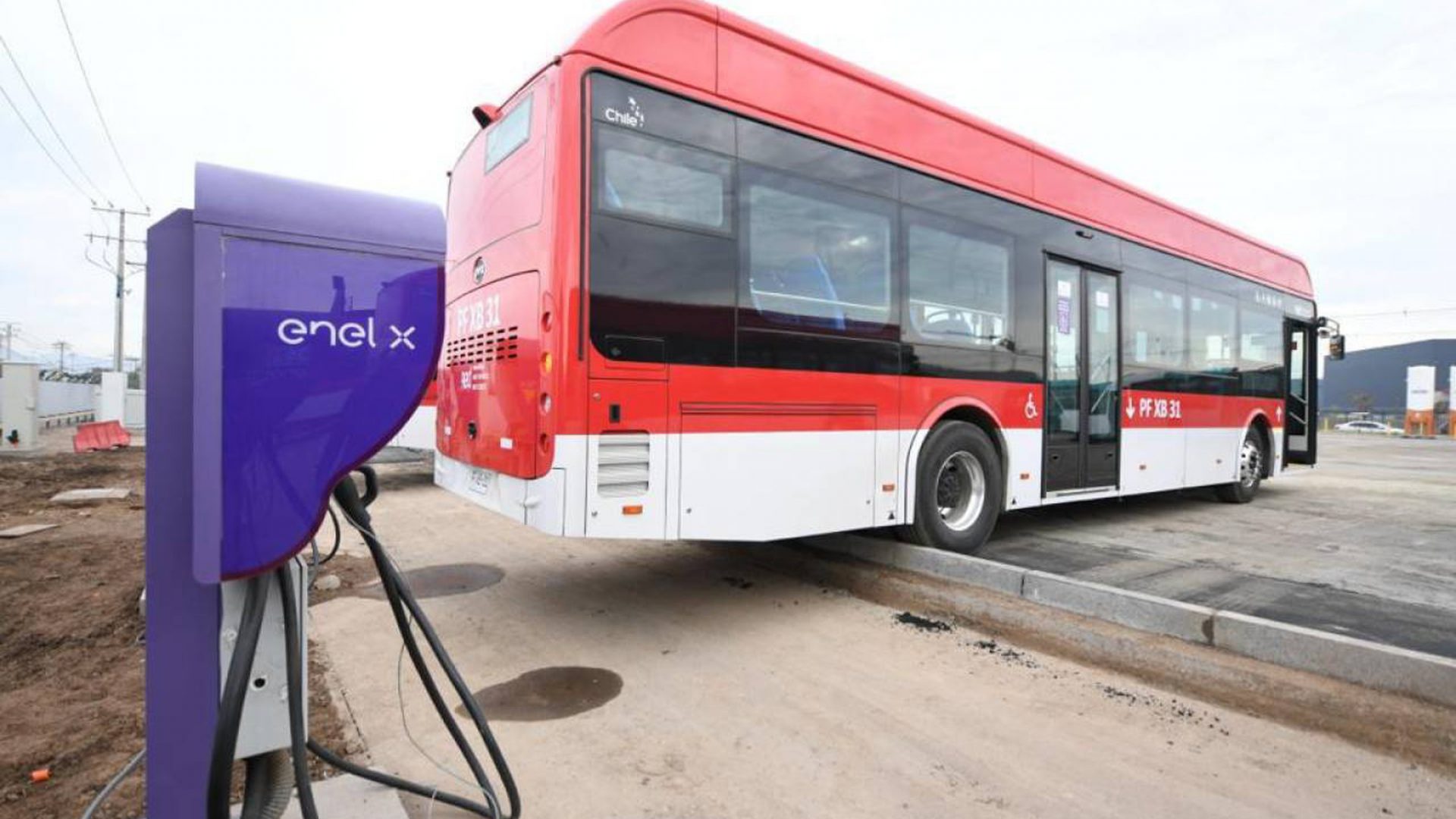
E-buses in the framework of the smart city
Thanks to the Smart City services proposed in the integrated project, a city can progressively redesign the spaces of the city, creating added value for citizens in everyday life: a bus equipped with security cameras and environmental sensors is much more than a simple means of transport. At the same time, a smart shelter with photovoltaic panels, charging stations and digital payment systems for travel tickets is far more than a simple waiting room and improves the relationship between its administration, its transport company and its citizens.
Enel X, from Latin America to Europe
Enel X has so far implemented renowned e-bus projects in Latin America, starting from Santiago de Chile. The company is also among the 17 players that, in late 2020, signed a pledge to accelerate e-bus deployment in Latin America with the Zero Emission Bus Rapid-deployment Accelerator (ZEBRA) alliance.
Santiago de Chile: nearly 500 e-buses provided
Focusing on the project in Santiago de Chile, in collaboration with the manufacturer BYD Chile and the public transport company Metbus, the group has provided so far (since 2018) as many as 493 e-buses, 13 electro-terminals, 40 integrated smart shelters fitted with digital systems and around 268 charging stations, in the framework of an ‘E-Bus as a service’ solution. The results? A 70% reduction in operating costs and a significant contribution in making the streets of one of the largest metropolises in South America cleaner.
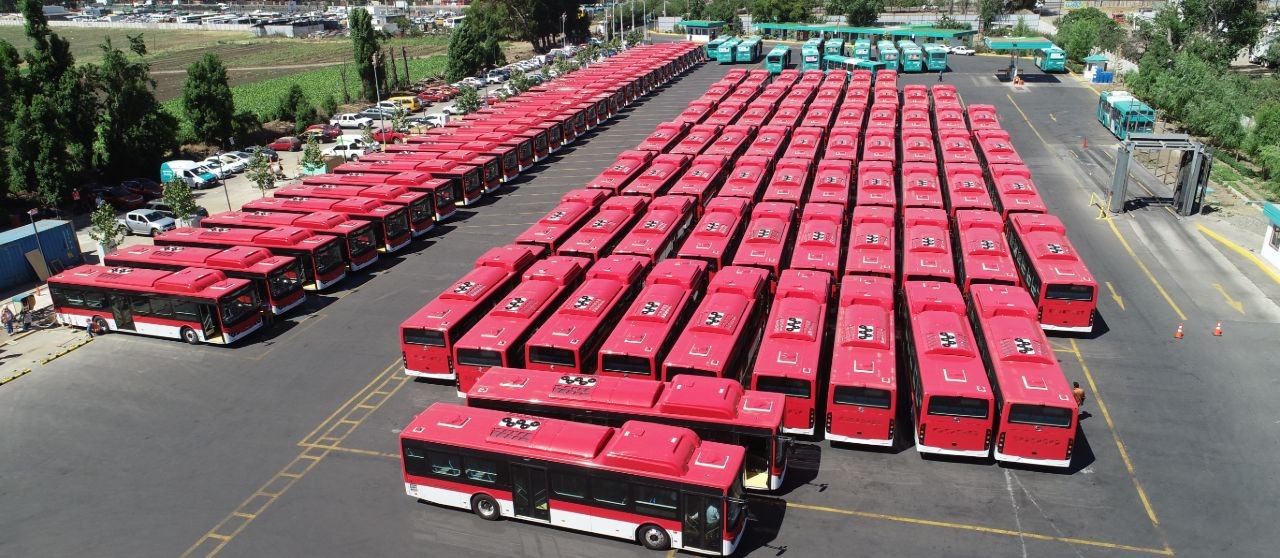
Bogotà: Enel X key partner in Transmilenio system
Such model has been replicated in Colombia capital city Bogotà: in 2019 with the construction of 4 electro-terminals for charging almost 500 e-buses and in January 2021 with the Transmilenio contract for the supply of another 401 electric buses and 2 new electro-terminals. The result is that Enel X is the key partner of SITP in contributing to the city’s decarbonization plan.
And the company has extensive plans for Europe. In Barcelona, the electrification of an urban line of local public transport company TMB is already operational using pantographs together with 30 storage charging stations.
Enel X, focus on Australian public transport
Last but not least, Enel X is now entering the Australian market bringing to the country its e-bus charging platform. Enel X will then work with public transport authorities and bus operators that are replacing traditional diesel buses with cleaner and more sustainable electric buses. The Enel X e-bus platform made available in the country includes advanced charging infrastructure to upgrade bus depots; a real-time software platform to optimize e-bus charging in relation to both operating schedules and energy costs; and long-term energy supply arrangements, including options for 100% renewable power.

